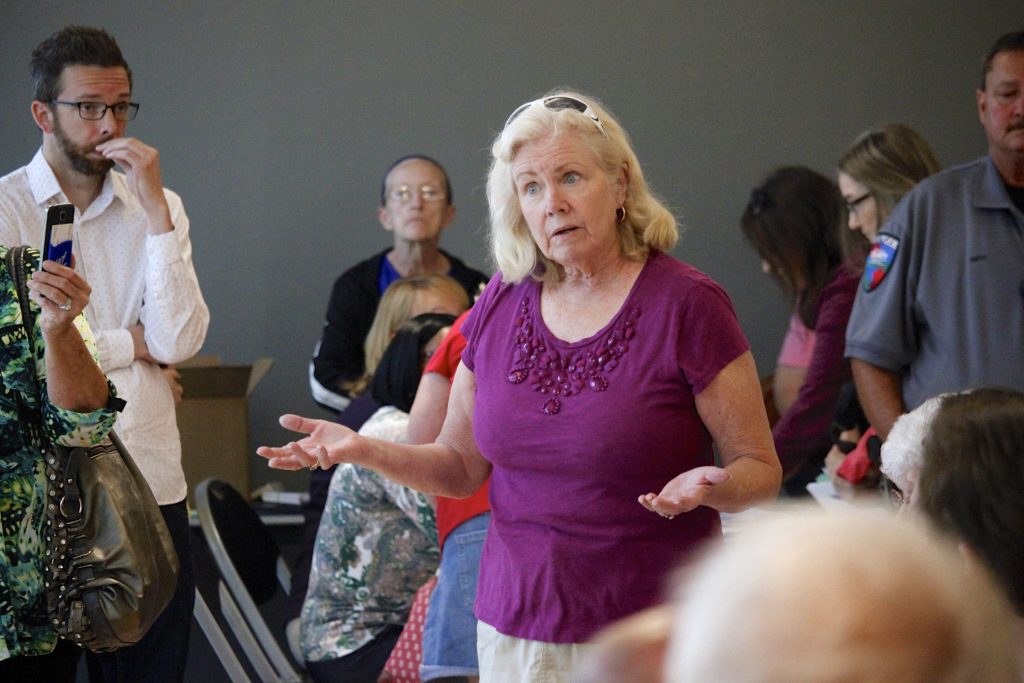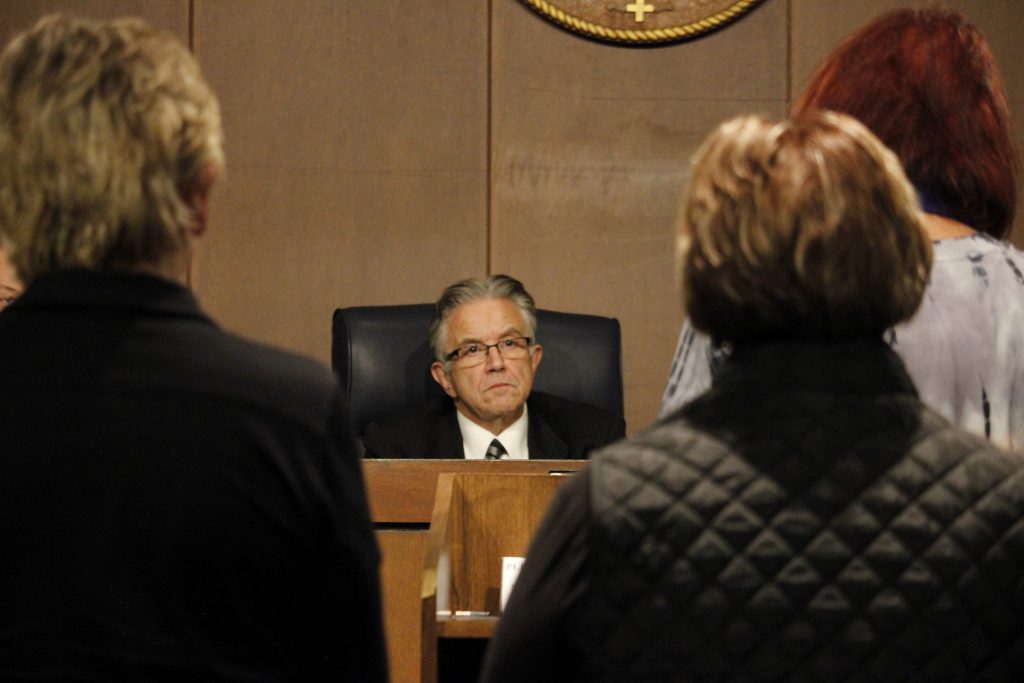The St. Louis County Council voted against legislation last week that would have frozen property taxes for seniors.
By a vote of 4-3 at the July 18 meeting, the council rejected the ordinance that would have taken advantage of a recently-enacted state law, Senate Bill 190, that freezes property taxes for seniors once they are eligible for Social Security benefits. Counties must opt into the program either by adopting it via ordinance or putting it on the ballot for a vote. Seniors would still pay property taxes but it would freeze the tax rate from any future growth.
First District Councilwoman Rita Heard Days of Bel-Nor, 2nd District Councilwoman Kelli Dunaway of Chesterfield, 5th District Councilwoman Lisa Clancy of Maplewood and Council Chairwoman Shalonda Webb of North County — all Democrats — voted against the measure. Seventh District Councilman Mark Harder, R-Ballwin, was joined by 3rd District Councilman Dennis Hancock, R-Fenton and 6th District Councilman Ernie Trakas, R-Oakville, in voting yes.
Supporters of the legislation said seniors that “supported their communities” just want “a little something back.”
“I think we all realize that the seniors of St. Louis County need tax relief now. With inflation at a … high rate, taxes soaring, medical costs soaring, cost of food, energy and other resources are now piled on the backs of people with fixed incomes,” Harder said. “The rest of us that have full-time jobs … or savings can weather that storm a little bit better but the seniors of our community can’t, no matter how wealthy some people think they are. … They’ve saved, they’ve scrimped, they’ve supported their communities. They just want a little something back … and now we have a vehicle … to do just that.”
South County resident Milton Rudi suggested scrapping property taxes altogether during public comment on the bill.
“There are too many facets to this tax regime to make it workable and fair to all over time. Given the times that we live in, high inflation and unstable property values, there is no end in sight where this tax will be acceptable to the majority of taxpayers,” Rudi said. “I suggest that … you scrap the property tax altogether as a source of revenue and create another, fairer vehicle for sourcing our citizens’ assets.”
Trakas, who previously expressed concern with the “one-size-fits-all” language of the proposal and restrictiveness of the state statute, said it was the state legislature’s fault that the council was even in its current situation.
“We’re in this situation today because of poorly-written, bad legislation. … There’s no doubt that Bill 114 (the county bill), because of the way Senate Bill 190 in Jefferson City was passed, is restrictive in terms of what we have the ability to do. … There are issues concerning eligibility, there are issues concerning the one size-fits-all,” Trakas said. “There are two horns to this dilemma. Helping seniors who desperately need it … the other, concerns for lost revenue. … Despite all the problems … the responsibility for those problems still lies in Jefferson City. I’m going to support this bill because there are too many seniors who need the help.”
Opponents of the bill, such as county Director of Revenue Scott Lakin, said the legislation would cost school districts, fire districts and other taxing bodies. The county Department of Revenue does not set tax rates but it collects revenue and distributes it to taxing entities.
Clancy said the one-size-fits-all policy of the bill referenced by Trakas was the reason she could not support the bill.
“We need a means test, we need to make sure that it is our most vulnerable that are being helped and not at the expense of our children,” Clancy said. “This bill is anti-education and … it is also anti-public safety and has huge ramifications for our fire districts and firefighters.”
Others, like Webb, were concerned about the unintended consequences the county bill could have on the very people it is supposed to help.
“I don’t want our seniors to get some undue consequences because due diligence wasn’t served,” Webb said.
Despite the bill’s defeat, the tax freeze program could still be implemented in the county via a vote on a ballot measure, which is outlined in the state legislation.To put the measure on the ballot, proponents would have to collect signatures from 5% of the people who voted in the most recent gubernatorial election, which was in 2020. It would take a majority vote to pass.



































